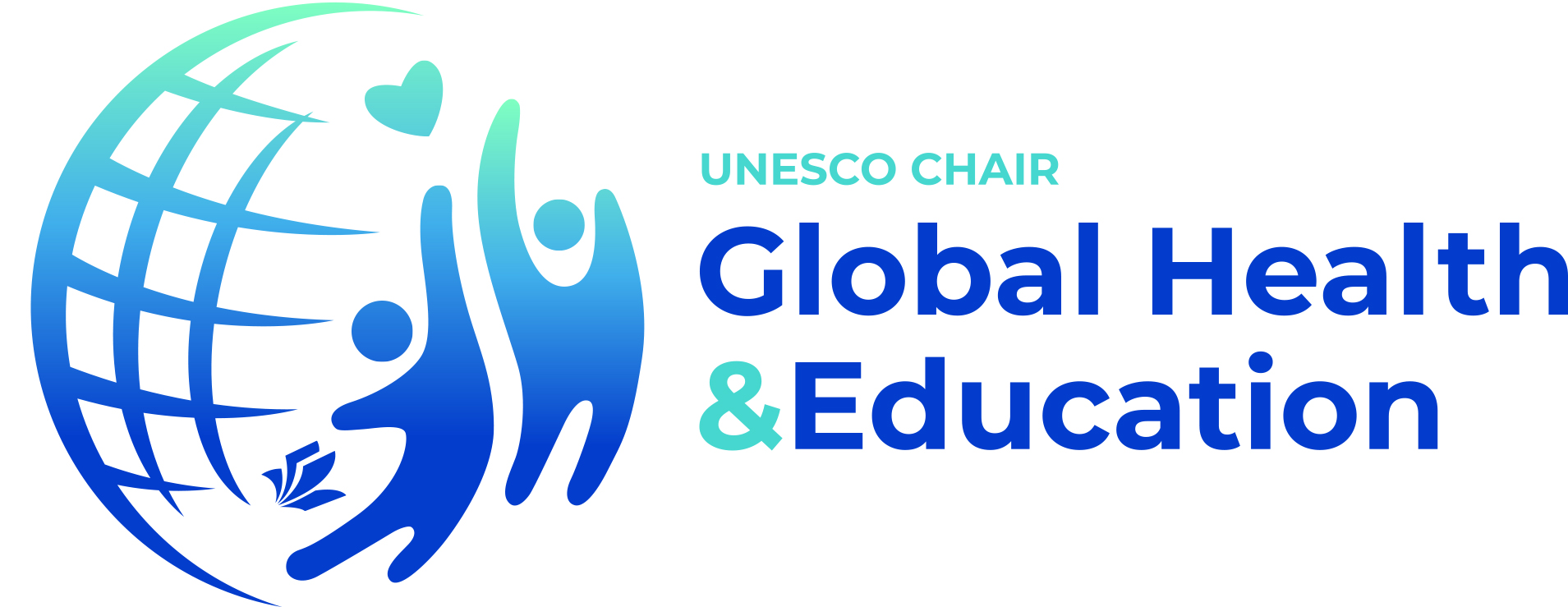A UNITWIN Network that strives to contribute to the common good through knowledge and capacity building.
Introduction
The UNITWIN Network is an initiative of the UNESCO Chair on Global Health & Education and the UNESCO Chair on Sexual Education & Human Rights. Its thematic area is innovation for sustainable development and the common good in the health and education sectors. Its emancipatory and ethical aim constitutes its unity.
The UNITWIN Network is intersectoral and interdisciplinary by nature. It aims to build bridges between academia, institutions, networks, professional communities and local authorities at the global, national, regional and local levels. By pooling resources and strengthening the capacities of institutions and organisations, this network is a laboratory of ideas for the production of effective and relevant responses to the new challenges facing societies. It supports the links between knowledge production, knowledge sharing, policies and practices.

The guiding principles of the UNITWIN Network are:
- Empowering people to make free and informed choices as individuals, as members of the community and as global citizens.
- To promote non-discrimination, solidarity, the equality of opportunity and treatment, and universal access to education and health.
- To recognize, value and be nurtured by the global diversity of knowledge, perspectives and experiences.
- Anchoring activities involved in local realities and different socio-economic, environmental, political, cultural and religious contexts.
Four activities
The following four activities will constitute the 2023-2027 workplan:

Foster global collaboration in research, training and knowledge sharing; develop interactive and collaborative platforms, social networks to facilitate connections and cooperation between the different actors involved in achieving sustainable development goals globally. Priority will be given to the most vulnerable.

Contribute to the training and capacity building of all actors (including students, professionals, committed citizens) using Massive Open Online Courses (MOOC) on health education, sexual health and human rights in the framework of sustainable development in different languages and cultures; facilitate North-South, South-South, West-East and East-West exchanges for students and academics.

Contribute to the sharing of knowledge generated at local, regional, national and global levels:
- by creating a series of multilingual interactive webinars open to all, in partnership with major public health and health promotion networks and institutions. The webinars will address issues of health promotion and sexual health, health education, health-related human rights and sustainable development. They will aim to enable a wide audience to participate in the presentations of experts on selected topics, and to provide them with the latest scientific data in an accessible and interactive format;
- by organising international scientific events (including online conferences, symposia, workshops, seminars) and a biennial summer school (rotating among the countries of the network’s members), giving priority to combine with meetings already organised by existing networks.

Contribute to the transfer of knowledge from research to policy and practice with the support of international and national networks:
- support the development of intervention tools adapted to different contexts by contributing to the transfer of knowledge relevant to action;
- support the publication of both scientific articles and tools accessible to practitioners, professionals, policy makers, but also to citizens (state of knowledge for policy actors, literature reviews, evaluation indicators, etc.);
- contribute to feeding intersectoral education/health/sustainable development policies by making available case studies, descriptions of relevant practices and research-based data, particularly with regard to ‘real effectiveness in context’ and ’transferability’.
How to become a UNITWIN Network member?
Currently there are 34 Universities from all over the world who have supported the application for this UNITWIN Network. Each member organization contributes to the realization of the workplan of the UNITWIN Network. With each member a partnership agreement will be made, with an annex to describe the concrete activities. UNITWIN members can use the UNITWIN Network logo in their communication.
Interested? Please send an email to silvia.deruiter@unescochair-ghe.org
